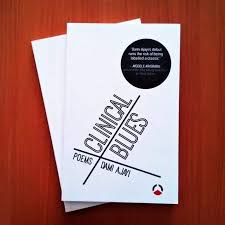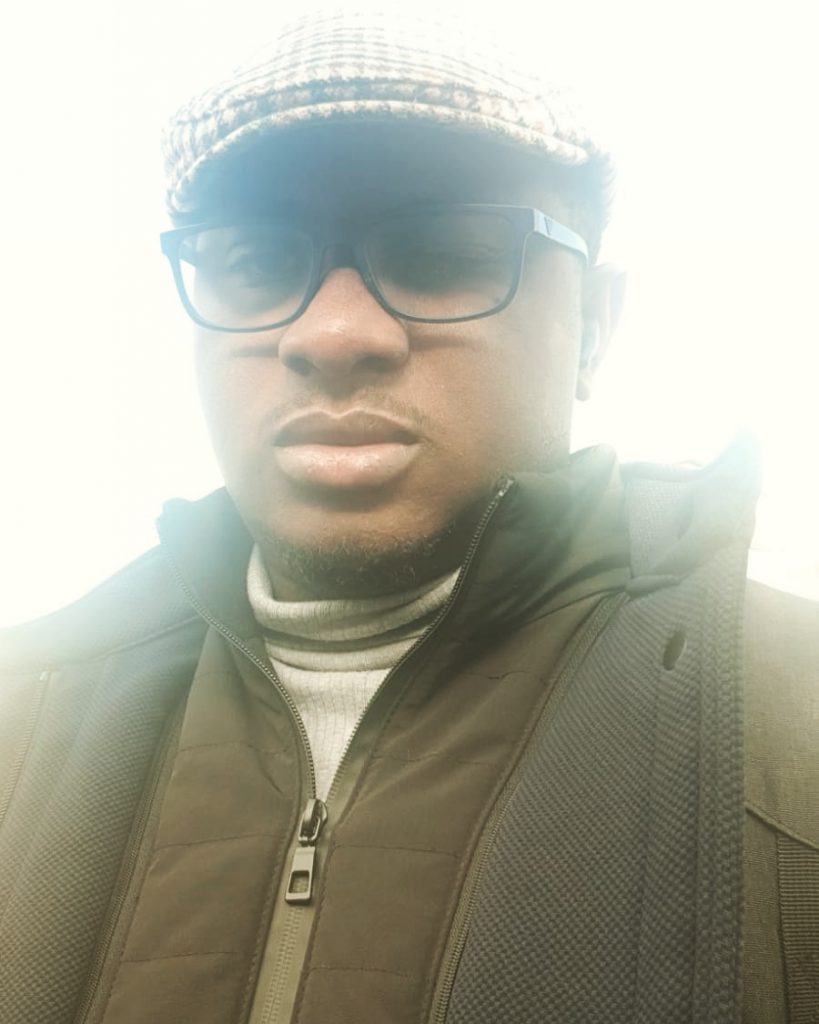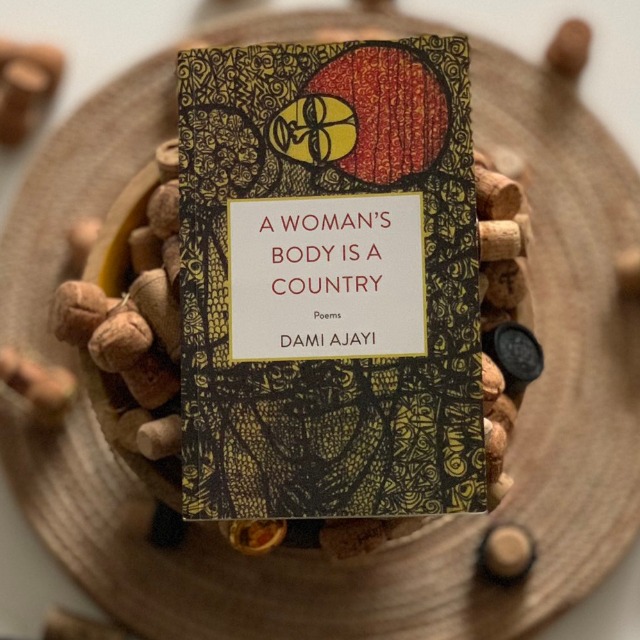Bio: Dami Ajayi studied Medicine and Surgery at Obafemi Awolowo University, Ile-Ife, Nigeria where he co-founded Saraba literary magazine. His first volume of poems, Clinical Blues, longlisted for the Erbacce Poetry Prize, Melita Hume Prize and the Wole Soyinka Prize for Literature in Africa, won the ANA Poetry runner-up prize. His second volume of poems, A Woman’s Body is a Country, a finalist for the Glenna Luschei Prize, was listed among Quartz’s Best African Books of 2017. His poems have been featured on BBC Radio, Badilisha Poetry X-Change and Lolwe.
His short stories have appeared in Gambit: Newer African Writing, Songhai 12: New Voices in Nigerian Literature, Afridiaspora’s My Africa, My City, Afreada, Itch Magazine, NigeriansTalk, Jalada Africa, Sentinel Nigeria and Brittlepaper.
His essays have appeared in Chimurenga Chronic, Guardian UK, The Africa Report, Lost in Lagos Magazine, The Elephant, Bakwa Magazine, Afropolitan Vibes Magazine, Expound Magazine. And also in translation in Das Goethe (a Die Ziet supplement).
His critical reviews of music, film and popular culture for the OlisaTV blog weekly for three years before joining ThisisLagosNG where he currently maintains The Good Doctor, a weekly column reviewing books, film and movies.
A recent profile about Ajayi’s work reads: “The delicate balance between Dami Ajayi’s poetry, essays and fiction is one that shows a writer with an impressive work ethic. From his sometimes brash but always insightful music reviews, to his long essay pieces on Highlife and Juju music, there is no missing the fact that he has a deep understanding of his subjects.”

RLN: You’re one of the leading voices on the African Poetry Scene, how did the journey begin?
DA: I am not sure there is a journey. I think I woke up this way *laughs*. It has only taken sometime for people around me to notice. I have been penning poems since I was 11, of course those poems were not serious, I wonder even if they were age appropriate or if they showed any kind of precocious genius at the time, but I kept writing till I got into medical school and then I began to take the poems more seriously, I began to think about craft, about style, about literary traditions, about musicality. I have published two books of poems and they have been both well received. I have been fortunate to travel mostly around Africa, Europe and America on the basis of my work and I have also tried to champion the work of others with my writings, reportage, reviews and even mentorship, but I think it all started in the back of one Volkswagen Beetle driven by my mother, when I had an unsettling feeling to put pen to paper. My greatest fidelity as a writer is to that moment.
RLN: Who were your early influences on your writing journey?
DA: Music has always been my first love. My father is a consummate lover who loved King Sunny Ade and Chief Commander Obey. Bob Marley and Fela Kuti were also staples. I grew up on that as well as battered copies of my mother’s Dostoevsky and Thomas Hardy. Borrowed copies of literary classics of Cyprian Ekwensi, Chinua Achebe and Chukwuemeka Ike came in handy. I read everything in sight, but the most iconic book that made me want to write poetry is West African Verse edited by Donata Nwoga.
RLN: You have two poetry collections published to wide acclaim “Clinical Blues” and “A Woman’s Body is a Country” tell us more about your books?
DA: I will say I am quite lucky with publishing. My two books have been well read and reviewed. I really don’t know how to talk about them. Clinical Blues is my coming of age book. I wrote poetry that wore its influences on its sleeves. A Woman’s Body is a Country is also a coming of age in its own right but I think it is a more lyrical collection of poems and it has helped establish my voice as a poet.

RLN: What has been the major highlight in your literary journey?
DA: I don’t think I have ever thought about this but every now and then, I read from a reader who says these poems have been useful to them, it brings me joy. In recent times, I have had to return to my own poems for succour and read them as some kind of light to my own path, I think that is the real highlight.
RLN: As a seasoned poet, what would you say makes great poetry?
DA: This is a rather difficult question. Great poetry is difficult to categorise but easier to acknowledge; we all know when we are in the company of great poetry. I think that is the best way to think about it.
RLN: As an editor, what advice would you give to writers before they publish that book?
DA: Write the book to the best of your ability. Rest the book. Do not be in a rush to publish.
RLN: I have read some of your short stories, they are gripping and evoke strong emotions. What other genre do you write?
DA: I pretty much write everything. Poetry. Fiction. Non-fiction. Not a lot of drama though.

RLN: As a leading African voice, where do you want to see African literature in the next ten years?
DA: I don’t know if I am indeed a leading voice of Africa but in 10 years I would like to see a flourishing publishing business on the continent. I will like African countries to have a boost in their economy and technology knowhow so that printing can be undertaken on the continent. I will like great distribution channels so that writers in Lilongwe can be read in Khartoum and poetry from poets writing in Kinshasa can be read in translation in Akure. I will like festivals celebrating literature in every country and that the industry is so developed that writers can write full time without leaning on academia or journalism for financial sustenance.
RLN: How has your career has a medical doctor influenced your writing journey, and would you say there is any correlation between your career journey and your creative direction?
DA: I was a writer long before I became a doctor but I see that both careers are focused on humanity. My practice in literature has taught me about empathy and working in psychiatry has exposed me to a range of human behaviour. So yes, both careers feed off each other, nicely.
RLN: Social media has birthed a new generation of poets, so what advice would you give to this new generation poets who are just beginning their journey?
DA: Read. Read those who came before you. Read your peers. Read those coming after you. Be the best poet you can be, which really means write the best poems you can write. Be cautious of new trends and be kind to everyone and yourself.

Lovely interview. Dami’s works got literary frost bite of prescience, brilliance & nostalgia.